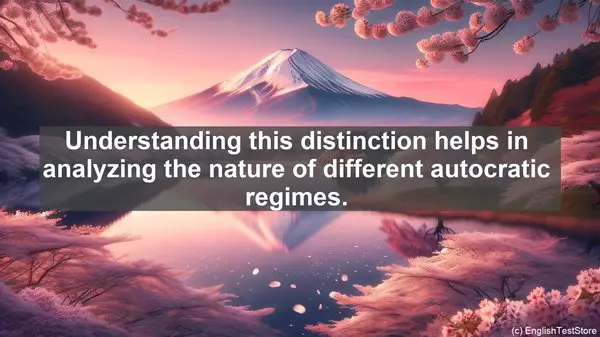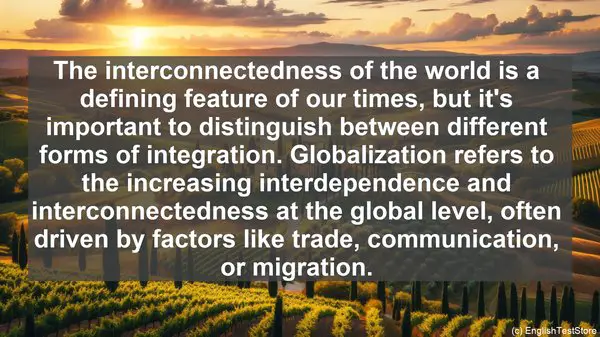Introduction: The Importance of Clarity in Comparative Politics
Hello everyone, and welcome back to our channel. Today, we’re diving into the world of comparative politics. As with any field of study, it’s crucial to have a solid grasp of the terminology. In this lesson, we’ll focus on 10 words that often trip up students. By the end, you’ll have a clearer understanding of these concepts, making your studies more effective.
1. State vs. Nation
One of the most fundamental distinctions in political science is between a state and a nation. While they’re often used interchangeably in everyday language, they have distinct meanings. A state refers to a political entity with defined borders, a government, and sovereignty. On the other hand, a nation refers to a group of people who share a common culture, language, or history. It’s possible for a state to encompass multiple nations or for a nation to be spread across multiple states. Understanding this difference is crucial when analyzing issues like self-determination or state-building.

2. Democracy vs. Republic
Democracy and republic are two forms of government that are often confused. In a democracy, power rests with the people, who directly participate in decision-making. On the other hand, a republic is a representative form of government, where the people elect individuals to make decisions on their behalf. While all republics are democracies, not all democracies are republics. For example, a direct democracy, where citizens vote on every issue, is a form of democracy but not a republic. This distinction is important when discussing the political systems of different countries.
3. Authoritarian vs. Totalitarian
When examining non-democratic regimes, two terms that often come up are authoritarian and totalitarian. While both refer to systems with limited political freedoms, there’s a difference in their scope. An authoritarian regime is characterized by a concentration of power in the hands of a few, often with limited political competition. In contrast, a totalitarian regime seeks to control not just the political sphere but also various aspects of society, such as the economy, culture, and even personal beliefs. Understanding this distinction helps in analyzing the nature of different autocratic regimes.
4. Federalism vs. Unitary
The division of power between central and regional authorities is a key aspect of political systems. Federalism and unitary are two approaches to this division. In a federal system, power is shared between the central government and regional entities, with each having some degree of autonomy. On the other hand, in a unitary system, power is concentrated at the central level, and regional entities have limited autonomy. This distinction is important when studying issues like decentralization or intergovernmental relations.

5. Civil Society vs. Political Society
Society is not a monolithic entity, and it’s crucial to differentiate between different aspects. Civil society refers to the realm of voluntary associations, such as non-governmental organizations, community groups, or professional associations. It’s the space where citizens come together to address common concerns or advocate for specific causes. On the other hand, political society refers to the formal political institutions and processes, such as political parties or government bodies. Understanding this difference helps in analyzing the dynamics of citizen engagement and political participation.
6. Globalization vs. Regionalization
The interconnectedness of the world is a defining feature of our times, but it’s important to distinguish between different forms of integration. Globalization refers to the increasing interdependence and interconnectedness at the global level, often driven by factors like trade, communication, or migration. On the other hand, regionalization refers to a similar process but at the regional level, such as the European Union or the Association of Southeast Asian Nations. Both processes have their dynamics and implications, and understanding this difference helps in analyzing the changing nature of international relations.
7. Power vs. Authority
Power and authority are two related but distinct concepts. Power refers to the ability to influence or control others, often through coercion or persuasion. It can be based on various factors, such as wealth, knowledge, or position. On the other hand, authority refers to the legitimate use of power, where individuals or institutions are recognized as having the right to make decisions or give orders. Understanding this difference is crucial when analyzing issues like governance or leadership.
8. Revolution vs. Coup
Both revolution and coup refer to moments of political change, but there’s a difference in their nature. A revolution is a popular uprising or a mass movement aimed at transforming the existing political, social, or economic order. It often involves a significant degree of mobilization and can lead to fundamental changes in the system. On the other hand, a coup, also known as a coup d’état, is a sudden and often violent seizure of power by a small group, typically within the existing power structure. Understanding this distinction helps in analyzing the dynamics of political change.
9. Interest Group vs. Political Party
Interest groups and political parties are both important actors in the political process, but they have different roles. An interest group represents a specific section of society or advocates for a particular cause. They often engage in activities like lobbying or advocacy to influence policy decisions. On the other hand, a political party is a broader organization that seeks to gain political power and govern. They typically have a range of policy positions and aim to win elections. Understanding this difference helps in analyzing the dynamics of political representation and policy-making.
10. Legitimacy vs. Legality
Legitimacy and legality are two concepts that often come up in discussions about governance. Legitimacy refers to the acceptance or recognition of a government or a political system by the people. It’s often based on factors like popular consent, historical tradition, or performance. On the other hand, legality refers to the adherence to laws or established rules. While something may be legal, it may not necessarily be seen as legitimate by the people. Understanding this distinction helps in analyzing issues like political stability or the acceptance of government decisions.
